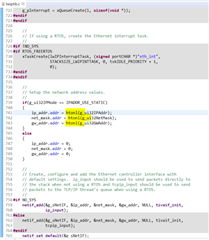Hi,
I want to use some inline assembly code to set the value of a couple of CCS variables (IP address, etc.) so I can set to a value that's in eeprom.
Is there a way to get the address of a CCS variable (uint32_t ui32IPAddr, for example) into a register so I can do this?
Thank you.


